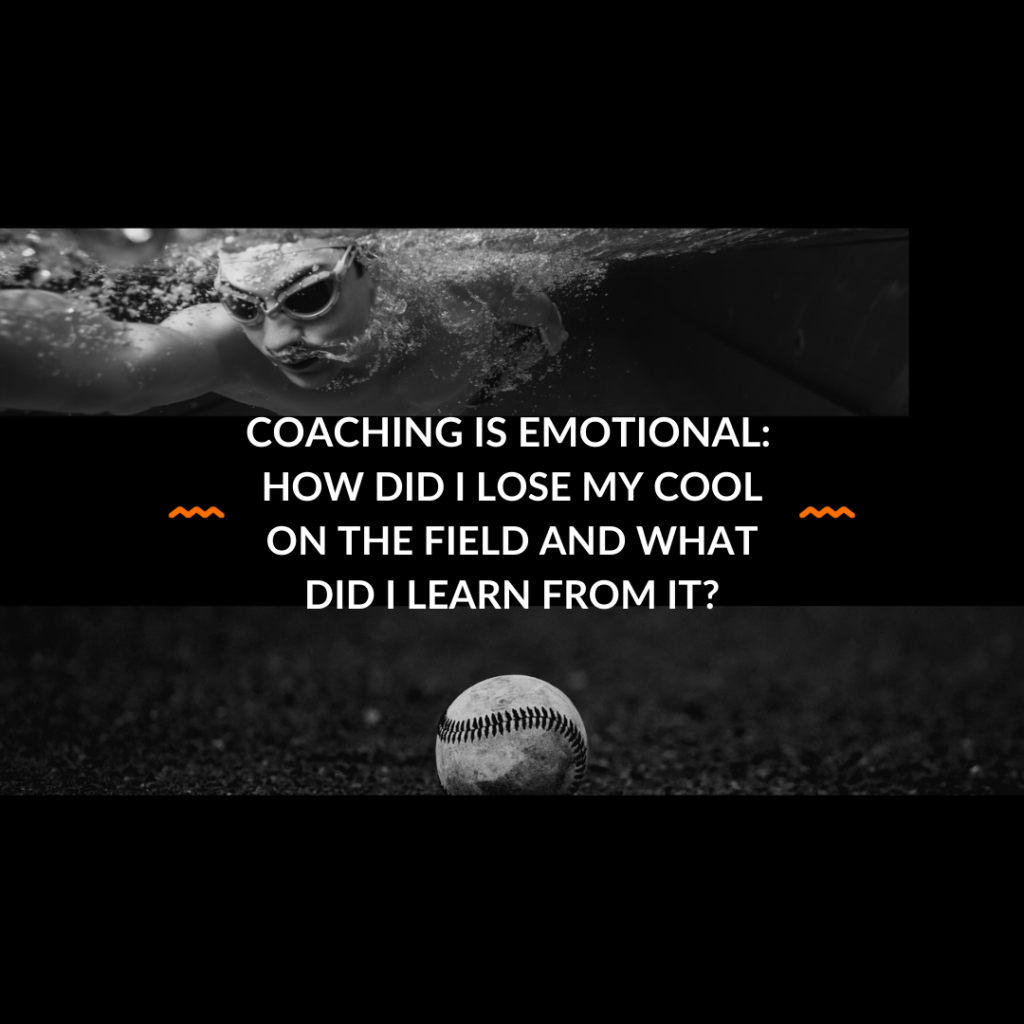I recently let my emotions get the best of me while coaching my 8th grade son’s baseball game. I humbly say that it is a rare occurrence that I lose my cool while coaching. However, I am guilty in this instance. It led me to wonder, how do emotions affect coaches and their coaching?
My emotional outburst was not directed at my players or the umpires. It was directed at the other coach. The top half of the final inning started to get out of hand. We were down by about six runs at the start of the inning. A combination of errors, past balls, and a couple of solid hits led to the game getting into mercy rule territory.
During the inning, I noticed that the opposing team was running on almost every pitch. They would advance from first to second, second to third, and even take home when possible. I didn’t think much of it early in the inning. However, as we approached a 10-run game, I started to pay closer attention if for no other reason than I was really frustrated for our players.
It wasn’t just the fact that the other team was running up the score. It was the way they were doing it. Players were “showboating” for lack of a better way to put it. Spinning around. Walking to the bases to bait throws. My instinct as a former baseball player who has played more years of baseball than these kids are alive was to get pissed. I felt my emotions starting to bubble as I watched it.
Finally, I lost my cool. I snapped across the field to the other coach. “Show some class.” I believe in most situations that I would have let this go. For whatever reason, it really irritated me. Badly. Ultimately, we reached the 10-run lead limit, but kept on playing. I could tell our pitcher was out of gas, both physically and emotionally. I called timeout and headed to the mound to make a change. However, we didn’t really have any other pitchers remaining, so we just decided to call it. It was a rec (or in-house) game and felt it was just time to end it.
We lined up to shake hands after the game and I was still very annoyed. As we shook hands, I couldn’t bring myself to say anything to the players. I would normally say something like good game or good job. However, I usually stay silent when I know I’ll get more angry when I open my mouth. I was just trying to cool down at that point before getting to the coaches.
I reached the other team’s head coach. As I extended my hand, he started to explain himself. Instinctively, this triggered me. My response was, “that was f***ing bulls**t” right in front of all of the kids. At that point, my emotions got the best of me. We were shouting back and forth across the field, debating what just happened. I used foul language. My behavior spiraled out of character. As it ended, I immediately knew what I did was against everything that I stand for as a youth sport advocate.
In retrospect, there were probably many reasons that could be attributed. One, I’ve just been a bit on edge in my personal life. Second, our fielders were making errors that were leading our pitcher to get frustrated. I was frustrated too. Third, the game was running longer than expected and frankly, I just wanted to go home after a long day. There are probably more reasons than these as to why I lost control of my emotions.
Whether true or not, I tend to think one of my greatest strengths is emotional intelligence. I am pretty aware of my own emotions and skilled at sensing the emotions of others. You might call this empathy. I have worked very hard on building self-awareness over the past 10 years of my life. Further, through my work, I’ve had the opportunity to gain a healthy perspective about youth sports. Yet, all of that good stuff went out the window. Turns out that I’m human…
So, what is the role of emotion in sport coaching?
Research on the subject of emotion in sport coaching suggests, “top-tier coaches understand that human emotion is inseparable from and often amplified in sporting contexts” (Magrum & McCullick, 2019).
Based on my own experiences, human emotion is also amplified in the youth sport context, not just elite sport. Luckily, I manage my emotions effectively in the vast majority of cases. However, all it takes is one uncontrolled human outburst to have a negative impact on young athletes while also tarnishing my reputation in the community.
“Saying or acting in an inappropriate fashion can generate a ‘bad taste’ in young athletes, and negatively impact their sporting experience” (Magrum & McCullick).
I believed this to be true before my recent meltdown and before reading the Magrum and McCullick article, and I believe it even more so now. However, coaches are human. They are not robots. Coaches get emotional because they are competitive, want the best for their athletes, and they CARE. These are valid reasons for a coach losing his or her cool. However, they are not excuses. Coaches must hold themselves accountable for poor behavior.
I pride myself on being accountable for my behavior. My response to this situation was to apologize unconditionally to my parents, my co-coach, and the other team’s coach. In my life, making timely amends is one of my core values despite it requiring more humility than I’m sometimes willing to swallow.
More importantly, I need to apologize to the young men who were exposed to my poor behavior. I haven’t had the chance to do it just yet, but I expressed this to our team’s parents and I intend to follow through as soon as possible. I don’t want my players to believe it is okay to react the way that I did. Further, I want them to know that it is okay to humble yourself and take responsibility for a mistake. Our words matter, but our actions are much more powerful.
In prior writings, I’ve gone into depth about the nature of the coach-athlete relationship. You can read more here: https://michaelvhuber.com/what-can-a-tv-character-teach-us-about-the-coach-athlete-relationship/.
One of the key themes I talk about in that relationship is respect. I’m a firm believer that adults can show respect to young athletes and earn their trust by apologizing for mistakes. It also shows that you care about them. Trust. Respect. Caring. These are the attributes of a healthy coach-athlete relationship that mitigate the negative impact of emotional outbursts that will often rear their ugly head in (youth) sports.
So what will I say to my athletes when I speak to them?
That’s a good question. I haven’t thought about the specifics, so now’s as good a time as any to think through it. I guess I’ll start with “I’m sorry for my behavior. It wasn’t cool.” However, I will explain the reasons why I lost my cool. “I felt you were being disrespected and it really bothered me.” I’ll go on to say, “The lesson in this is that there is only so much we can control. We can’t control what the other team does. We can only control our reaction to it, and my reaction was poor.”
As a mental performance coach, “controlling the controllables” is something I work on with almost every young athlete. I often feel like it’s a bit elementary, but the truth is that working on the basics is critical in my practice. Building awareness of what we can and cannot control helps us with our reactions in emotional situations. Unfortunately for me, despite being highly aware that I should focus on our dugout – not our opponent’s – I took their behavior personally and acted like a jerk.
As a mental performance coach, I also bring attention to the fact that we can’t change the past. Focusing on the past is an unwanted distraction when maximum focus of attention needs to be placed on the present moment for optimal performance.
I wouldn’t be practicing what I preach if I dwelled on my poor coaching performance. Rather, I chose to learn from it and apply it in my work by writing about it in this post. I’m a firm believer that teaching from experience is better than lecturing from a book. Hopefully, you agree.
If you benefited from this writing, then I’d love to hear from you.
References
Magrum, E.D., & McCullick, B.A. (2019). The role of emotion in sport coaching: A review of the literature. The Sport Journal, no page numbers.

